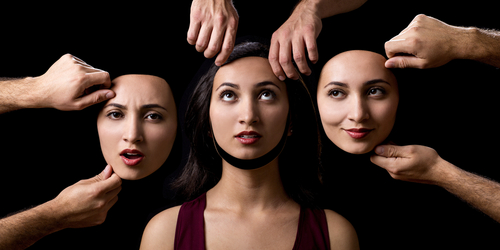
Trigger Warnings: This article will mention suicide. If you are struggling with thoughts of suicide because of your bipolar disorder, or for any other reason, please call the National Suicide Prevention Hotline: 1-800-273-8255
Bipolar disorder is a mental health condition in which a person shifts between mania, hypomania, and depression intermittently. Experiences with mood can last for many weeks to many months, then seemingly change from one day to the next into the next mood. Mania in bipolar is illustrated with feelings of grandiosity, insomnia, high energy, creativity, and feelings of invincibility. Depression is the opposite. Especially after episodes of mania, bipolar depression includes feelings of worthlessness, low energy, exhaustion, fatigue, and cognitive fog. Many people with bipolar feel out of control of their emotional and psychological lives. They turn to behaviors like substance abuse and self-harm to cope with their difficult feelings. Bipolar disorders has high risks of drug addiction, alcoholism, attempts at suicide, and more destructive behaviors to cope with the intense levels of emotions.
Though bipolar can have many characteristics and symptoms recent research found that bipolar disorder has a higher occurrence of three specific personality traits in particular, especially compared to people without bipolar disorder. The study came from Swedish researchers who wanted to discover differences in personality traits between people with bipolar I and bipolar II disorders as well as people without bipolar I or bipolar II.
Generally, the researchers found, the three personality traits which are more common in bipolar I and bipolar II are: neuroticism, aggressiveness, and disinhibition.
Someone who is neurotic is someone who is deeply stressed to a point of becoming detached from reality. Their stress can come from varying symptoms which pull from all different kinds of mental health disorders. Regularly shifting moods, which is common in bipolar, is common in people who are neurotic. People who experience extraversion are people who are outgoing socially and go after what they want in life. When someone with bipolar I or bipolar II experiences mania, they tend to become extraverted as opposed to when they are depressed and will be more introverted. Part of what makes the mania so powerful is the feeling people with bipolar experience after being introverted and having the energy to be extraverted. Lastly, disinhibition is typically a lack of organization, acting rashly, and feeling misdirected in life.
If you are struggling with bipolar disorder and you are turning to drugs and alcohol or other destructive behaviors, there is hope. Help is available to you to recover. Avalon By The Sea is a state recognized primary mental health treatment facility in addition to provider of substance abuse treatment. Our certified excellence in both fields makes our dual diagnosis treatment exemplary, providing trusted treatment with trusted results. Call us now for a confidential assessment and more information by calling 888-958-7511.











